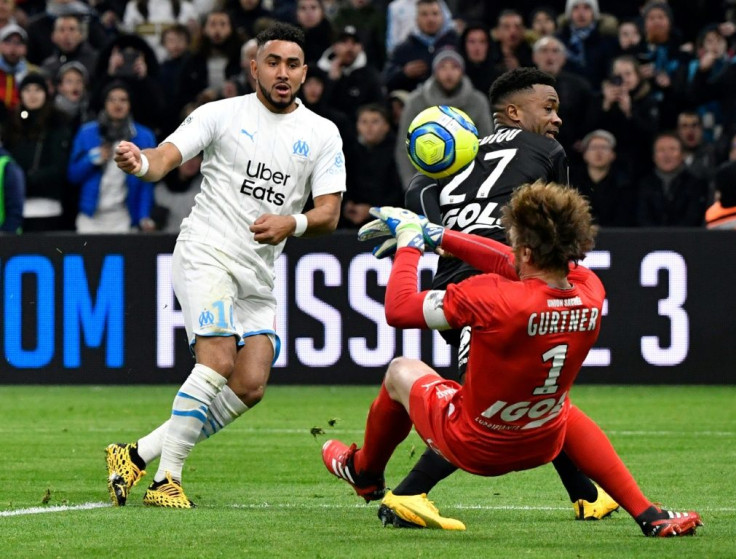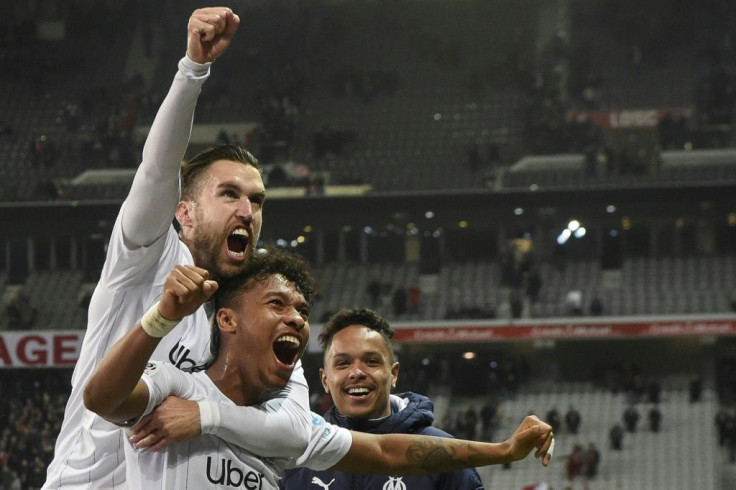Football And Rap, A Perfect Match In Working-class Marseille

Marseille has the flow. Rap resonates at the Velodrome and references to OM infiltrate the airwaves, but why are the links with urban music and the club stronger here than anywhere else in Ligue 1?
"The marriage between OM and rap was obvious," Sat l'Artificier, a former member of Fonky Family, one of the region's most prominent rap groups in the 1990s and 2000s, tells AFP.
"A working-class city, with a working-class sport and working-class music like rap."
To illustrate the point, other than the timeless classic "Jump" by Van Halen, hip hop accounts for the rest of the soundtrack pumping out at the Velodrome, the club's 67,000-capacity stadium in the Mediterranean port city.
The evening begins with Bouga's "Belsunce Breakdown" as the players shuffle out for warm-ups, then just before the teams are announced images of the city and its fans are projected against a backdrop of "Bad boys de Marseille" by Akhenaton, a singer with IAM, Marseille's biggest rap group.
After home wins, the sound system blasts out "A la bien" by Soprano, another Marseille native and supporter.
"Rap and football, we're in two very similar universes," says Herve Philippe, the club's chief marketing and media officer as he reflects on the electric atmosphere, currently on hold during the coronavirus pandemic.
"Marseille is a rap city," adds Kheops, the "musical architect of the group IAM, the first on the Marseille rap scene at the start of the 1990s.
Listing the likes of Soprano and Jul, Kheops says all these artists have "OM in their blood".
"All the youngsters in the north and south stands listen to rap," he adds.
Marseille is without question "a rap stronghold", but Sat is keen to highlight the club's role in it all, with OM long upholding the link through various collaborations.
The emblematic Akhenaton designed the club's European shirt for the 2012-13 campaign and Soprano, in 2007, filmed the clip for his "Hallah hallah" hit at the Velodrome.

The end of the video shows the musician returning the stadium keys to the late former president Pape Diouf.
Soprano was even named a club ambassador.
"It's no small achievement," says Sat. "Imagine, a little Marseille boy with Comoros roots and from Plan d'Aou, one of the poorest neighbourhoods, on the outskirts of the city, an ambassador of the biggest French club. It sends a strong message!"
More recently, Alonzo, alongside Soprano formerly part of the Psy 4 de la rime group, another pillar of Marseille rap, has worked with sportswear giant Puma, shooting a commercial alongside Diego Maradona to promote the club's home kit.
Sat himself has recently been sharing the microphone with longtime stadium announcer Dede Fournel.
Soprano concerts have filled up the Velodrome three times, and Jul was expected to do the same in June.
Marseille's newest rap sensation has featured players in his music videos, including ex-France international Remy Cabella.
The club itself also organises 'OM Sessions' -- working with budding artists to produce a series of freestyle videos.
"We offer our platform, which is international, to local artists who are not yet very well known, for an OM freestyle," explains Philippe.
The clips are shot at the Velodrome or La Commanderie, the training centre, interspersed with shout-outs to players and specific catchphrases. They generate hundreds of thousands of views on the club's YouTube channel, such as "A la Boli" by Ilies.
"For more than 10 years OM have maintained very strong links with the rappers in the city," says Sat.
The connection remains strong with the younger generation too, with Drime's "Bouba Kamara" song a tribute to the rise of Boubacar Kamara from the working-class area of La Soude to the Marseille first team.
© Copyright AFP {{Year}}. All rights reserved.



















